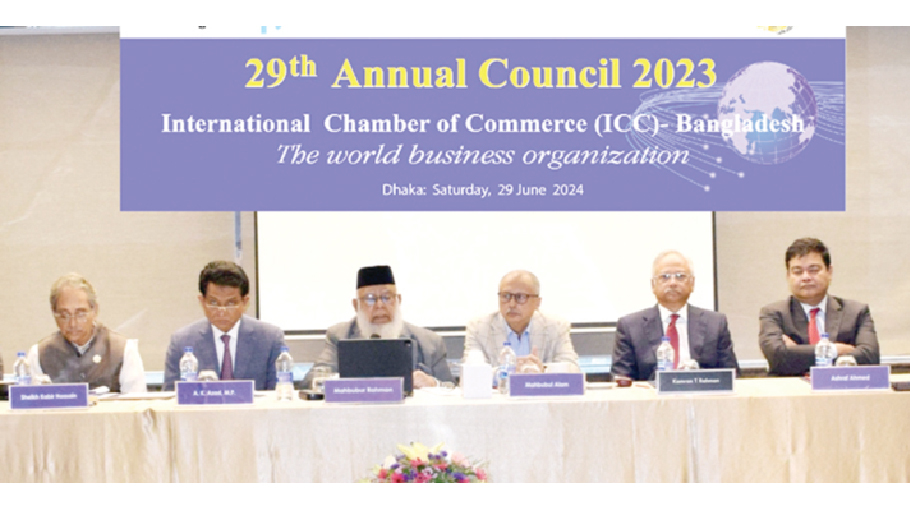Bangladesh needs structural reforms to address graduation challenges
Speakers tell ICCB annual council

Bangladesh needs significant structural reforms to address the complex set of challenges on its path to achieving upper-middle-income-country status by 2031, opined speakers at the 29th annual council of International Chamber of Commerce, Bangladesh (ICCB) on Saturday.
In anticipation of this transition, Bangladesh also needs to adopt policies to boost trade competitiveness and broaden its participation in bilateral and multilateral free trade agreements, they added.
Bangladesh's economy made a strong turnaround from the COVID-19 pandemic, but the post-pandemic recovery continues to be disrupted by high inflation, a persistent balance of payments deficit, financial sector vulnerabilities, and global economic uncertainty, according to the World Bank twice-yearly-update released on 2 April 2024, said ICCB President Mahbubur Rahman while presenting the Executive Board Report in the Annual Council, held in Dhaka.
He mentioned that the World Bank has forecast Bangladesh's real GDP growth to remain relatively subdued at 5.6 percent in FY24, compared to the average annual growth rate of 6.6 percent over the decade preceding the Covid-19 pandemic,
Rahman mentioned that since the Russia-Ukraine war broke out in February 2022, Bangladesh has been experiencing economic crisis due to escalated prices of global commodities since the country's foreign currency reserves depleted fast amid higher import bills.
The recent Middle East tension is also hurting the economy as the dollar crunch shows no signs of disappearing, forcing the Bangladesh Bank to maintain import restrictions, squeezing supply, he noted.
Bangladesh, aiming to achieve middle-income status by 2026, to achieve this and minimize post- graduation challenges ICCB Executive Board suggested to addresses some key issues. These are :
The Council approved the Audited Accounts for 2023 and appointed Auditor for the year 2024. The Council also announced the New Executive Board of ICC Bangladesh for the period, April 2024 to March, 2026.
UN Resident Coordinator Gwyn Lewis, ADB Country Director Bangladesh Edimon Ginting and UNICEF Bangladesh Acting In-charge Farook Doomun attended the Council Meeting as Special Guest.




